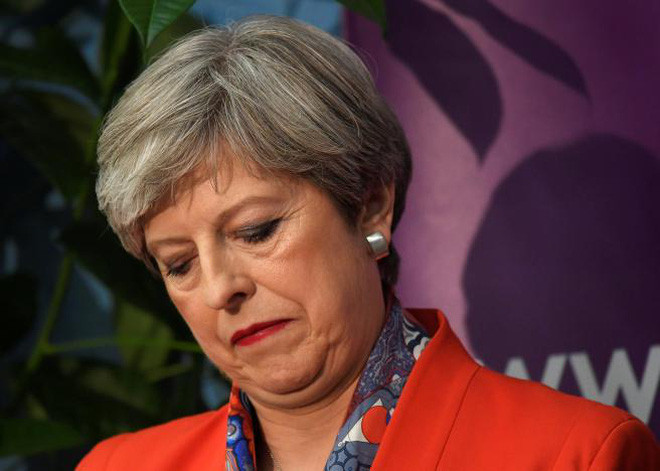British Prime Minister's uncertain political future
British Prime Minister Theresa May has announced she will lead a minority government backed by a small party in North Iceland after her Conservative Party lost its majority in Parliament.
Previously, the Prime Minister was confident that the early vote would help increase power for the Conservative government before entering Brexit negotiations (taking Britain out of the European Union) scheduled to take place on June 19.
Instead, the June 8 general election result has damaged Mrs. May's reputation and made her political future more uncertain than ever.
 |
British Prime Minister Theresa May. |
"I apologise to all the hard-working candidates and party members who were unsuccessful," Mrs May said after Labour unexpectedly won 31 seats in Parliament to take its total to 261.
Meanwhile, the ruling Conservative Party won only 318/650 seats, losing 10 seats compared to the previous election and could not achieve the necessary majority (326/650) to form a government. This is the first time the Conservative Party has lost its majority in the British Parliament in 18 years.
This result forced Theresa May to form a minority government and seek a coalition with the Democratic United Party (DUP), a party in Northern Ireland, to gain enough seats in parliament. However, it is still unclear what the DUP's demands will be in the coalition agreement to form a government.
On the afternoon of June 9, Mrs. May left Downing Street for Buckingham Palace to ask the Queen for permission to form a new government.
This means that all of Mrs. May's policies as well as the content of Brexit negotiations prepared by the Conservative Party will have to be redefined from the beginning and certainly British politics will once again experience turmoil and instability like a year ago, when voters in this country chose to leave the European Union.
According to Vietnamnet
| RELATED NEWS |
|---|


